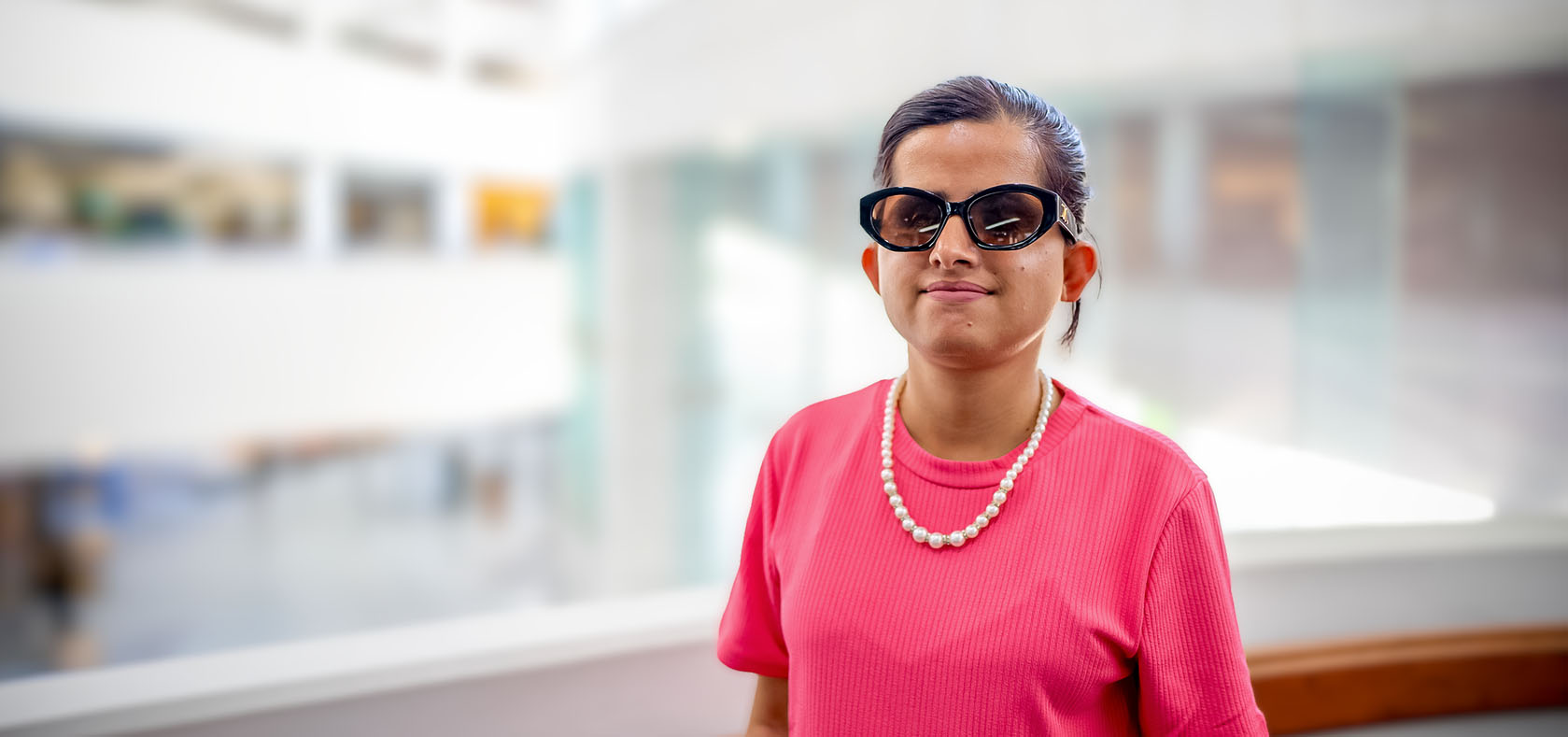Take Five Nepal: “I hope the Beijing+30 review will enhance the perspective of women and girls with disabilities”
Date:

Laxmi Nepal is Executive Director of Access Planet, a Nepalese organization that promotes the rights, empowerment and inclusion of persons with disabilities, in particular girls and young women. She recently attended the Asia-Pacific Regional Consultation on the 68th Session of the Commission on the Status of Women (CSW68), as well as the CSO Forum that took place just before the consultation. Nepal spoke to UN Women about her participation in the upcoming national and regional review (Beijing+30) of the implementation of the Beijing Declaration and Platform for Action (BPfA).
How have you found the CSO forum and the CSW consultation event?
It was great that I could participate in both the CSO forum and the CSW68 regional consultation. I’d like to thank UN Women for that. Without them it is difficult for us – coming from less developed countries - to participate in these events because of the cost. Also, it really helped my participation that accompanying support was provided. Sometimes host organizations are not able to support accompaniment, which can hamper independence of participants with disabilities.
This year, countries and regions are reviewing the implementation of the Beijing Declaration and Platform for Action? Tell us about your work on this.
We have two approaches regarding the Beijing Platform for Action. One is to advocate for specific interventions on women and girls with disabilities, and the other is to mainstream the concerns of women and girls with disabilities into policies and programmes in all other areas.
Our objective is not just to get the word “disability” into the conclusions of the review, but also to increase awareness to civil society organizations, development agencies, UN mechanism and government during the review process. By having disabilities included in the outcome document, governments and other actors will be more sensitized.
What are some of the main achievements of the Beijing process since its adoption?
Many of us were not born or were very young [in 1995, when the Agreement was signed]. Some of the developments we see in the current processes started after Beijing, such as the inclusion of intersectional identities whose gender challenges are compounded by their membership of a minority community such as ethnicity, disability, sexual orientation or identity. That’s the main achievement I see.
Another success is that the Beijing process is conducted in the open. This is making our government gradually more accountable for the rights of women.
What are some of the remaining challenges?
After this review process, there will be outcome documents and recommendations but because they must be concise and should highlight many issues, the documents are very generic. For instance, in this year’s CSW, we are focusing on the theme of addressing poverty. If you see the action points [from this consultation], they mention women with disabilities, but there is nothing about information accessibility. Our issues are different. For instance, it is difficult for me to open a bank account independently, even though I am able to use online banking. If I want to buy land, they also require a guardian. I’m not a minor, why should I need a guardian!
Also, the workplace inaccessibility, failure to provide reasonable accommodation in the workplace and negative attitude of overall financial institutions are hampering economic independence of women with disabilities which have not been realized by the action points.
We have a big problem with information accessibility. We cannot work without assistive devices. Those are mostly produced in developed countries, and are very expensive.
The term “accessible” is mentioned in the conclusions, but not specifically the Web Content Accessibility Guidelines [a recognized ISO standard following recommendations by the World Wide Web Consortium (W3C) to make web content more accessible for people with disabilities].
The documents usually include people with disabilities as beneficiaries, for example of social security. This is true, but it fails to identify women with disabilities as contributors to economy if they are given the opportunity to work with the enhancement of accessible workplace and adoption of reasonable accommodation.
What advice can you give to other members of the women’s movement in Nepal and Asia-Pacific, in relation to the review process?
Every network should follow the timeline for effective advocacy. The Beijing+30 review should consider women’s issues from the grassroots level and bring up perspectives of intersectionality. Also, the process should not be Kathmandu-centric, just focused on the capital. Because the issues of rural women can be completely different. Those women are facing difficulties in accessing basic needs. So international treaties mean nothing for them. My advice is to include diverse groups, and the participation of grassroots girls and women.
I’ve also found that in these reviews the voices of youth and specifically girls are not even heard. Maybe specific focus group discussions can be held for addressing girls’ issues in the document.
Also, even among women with disabilities, some are underrepresented like rural women, Dalit women. Also, invisible and development disabilities like autism and psychosocial disabilities are less represented. Those groups also should be invited.
What are your expectations for the Beijing+30 review?
Working in the disability sector and being a person with a disability myself, I hope the Beijing+30 review will enhance the perspective of women and girls with disabilities and produce actionable recommendations. I’m expecting that the recommendations will guide countries on how to do better in the next five years. I would also like to see the review produced in more accessible formatting.
In 2025, the global community will mark the thirtieth anniversary of the adoption of the Beijing Declaration and Platform for Action (BPfA), and 10 years of the Sustainable Development Goals (SDGs). As part of the commemoration, national and regional reviews are conducted to assess current and emerging challenges that affect the implementation of the BPfA and the achievement of gender equality and the empowerment of women and its contribution towards the full realization of the SDGs.